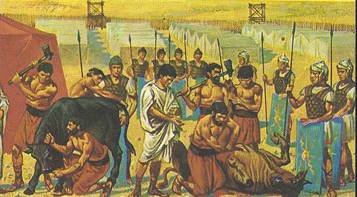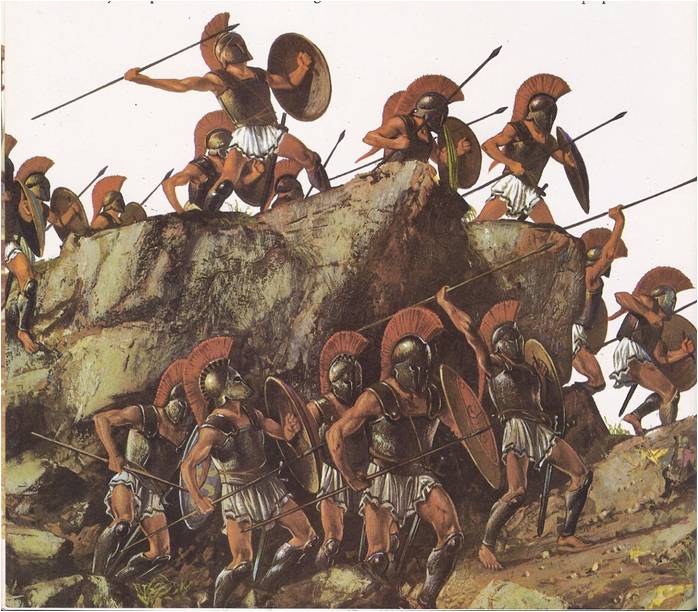ON ROME’S first day, Romulus took a bronze plow and drew a magic circle around seven of the hills that stood beside the River Tiber. The magic of the circle was protection against the evils outside. More important, it bound together the people who were inside, making one city where there had been six towns. Seven hundred years later, Augustus drew another magic circle, this time around all the Mediterranean world. It kept out barbarian and Asian invaders and held together millions of people, making one empire where there had been dozens of races and nations. So long as the …
Read More »Tag Archives: Spain
The City of the World A. D. 117 – A. D. 138
ROME was no longer just a city — it was a world. In the reign of Hadrian, the blaring trumpets that announced the comings and goings of the emperor echoed in Spain, Syria and Britain as often as in Italy. Hadrian wanted to know what was going on in all of his empire. He wanted to inspect the troops and forts that held the frontiers and to judge for himself the wisdom of the governors he had sent to rule the provinces. He wanted to visit the towns and cities, to see their ancient buildings, to plan new buildings where …
Read More »The City of Augustus 29 B. C. – A. D. 14
IN 29 B.C. the gates of war were closed. Rome was at peace. Senators and the people of the mob-men who had hated and fought each other through long, bitter years — stood side by side in the Forum while the great doors of the temple of Janus were slowly pushed shut. That had happened only twice before in the history of the city. The crowd in the Forum cheered the peace and they cheered Octavius, their new ruler. He was no longer the young man who had rushed to Rome after the murder of his uncle, Caesar. Seventeen years …
Read More »The City of Caesar 80 B. C. – 44 B. C.
THE story of Rome in the years after Sulla’s death was the story of a partnership of power. It was the tale of three men who bargained for the world — a rich man, a poor man and a man who was not only a hero, but looked it. The rich man was Crassus, who had become a millionaire by setting up the only fire department in Rome. The tall buildings and narrow, crowded streets of the city made a fire a constant danger. When one house burned to the ground, the buildings on either side were likely to fall …
Read More »Greek Against Greek 430 B. C. – 404 B. C.
About 425 B. C., a lonely man, in a country that was not his own, sat down to write the story of a war that had begun six years before. Thucydides, an Athenian, had fought in the war’s first battles. He had been a general, in command of thousands of his city’s troops. Then he was ordered to go to the aid of another commander whose men were outnumbered. When he arrived, the battle had already been fought and lost. It was not his fault but the people of Athens were too anxious about the war to consider that. They …
Read More »The Silent Peninsula 3000 B.C. to 1600 B.C.
About 3000 B. C., when the Pharaohs ruled Egypt and Babylon was the home of mighty kings, bands of sailors set out from Asia Minor. They followed a little chain of islands that led northward across the unexplored sea that, centuries later, would be called the Mediterranean. If the islands had not been there, the sailors would never have dared to sail so far from home. Asia, the only world they knew, stopped at the eastern store of the sea. Some of the men were afraid that they might suddenly reach the end of the world and drop over it …
Read More »




